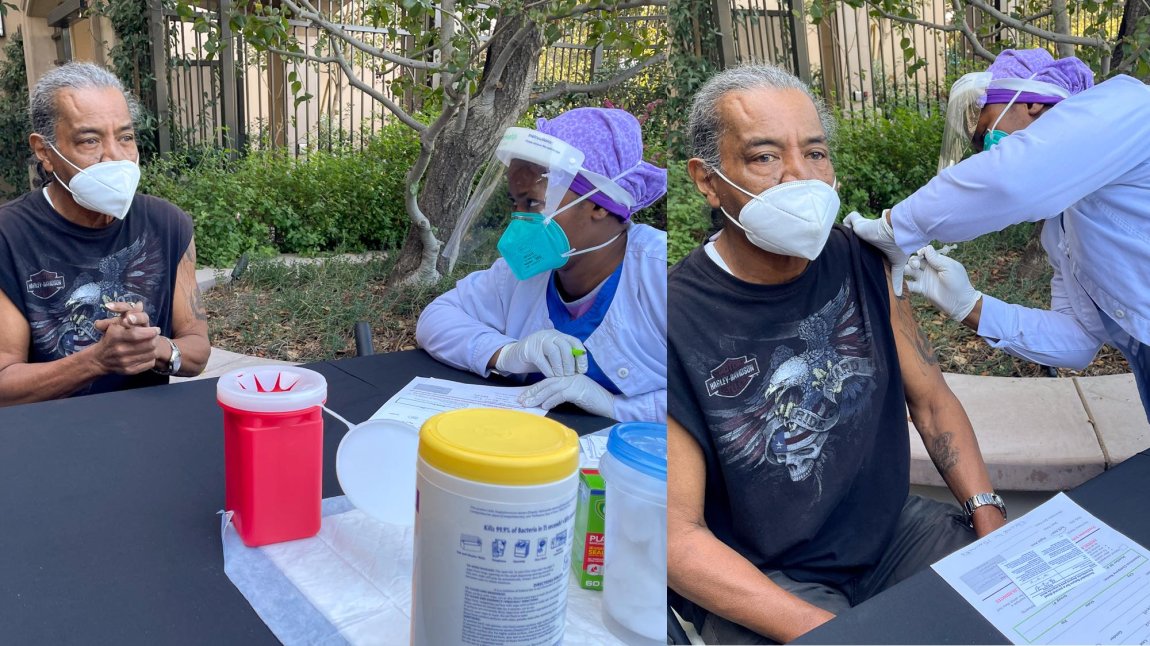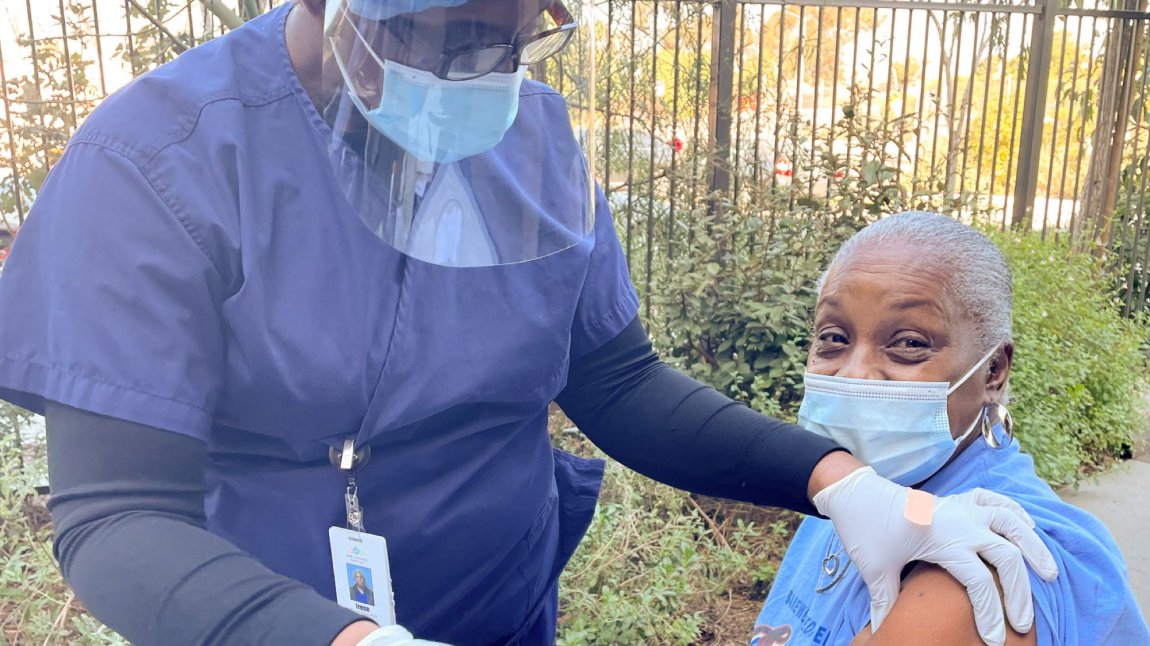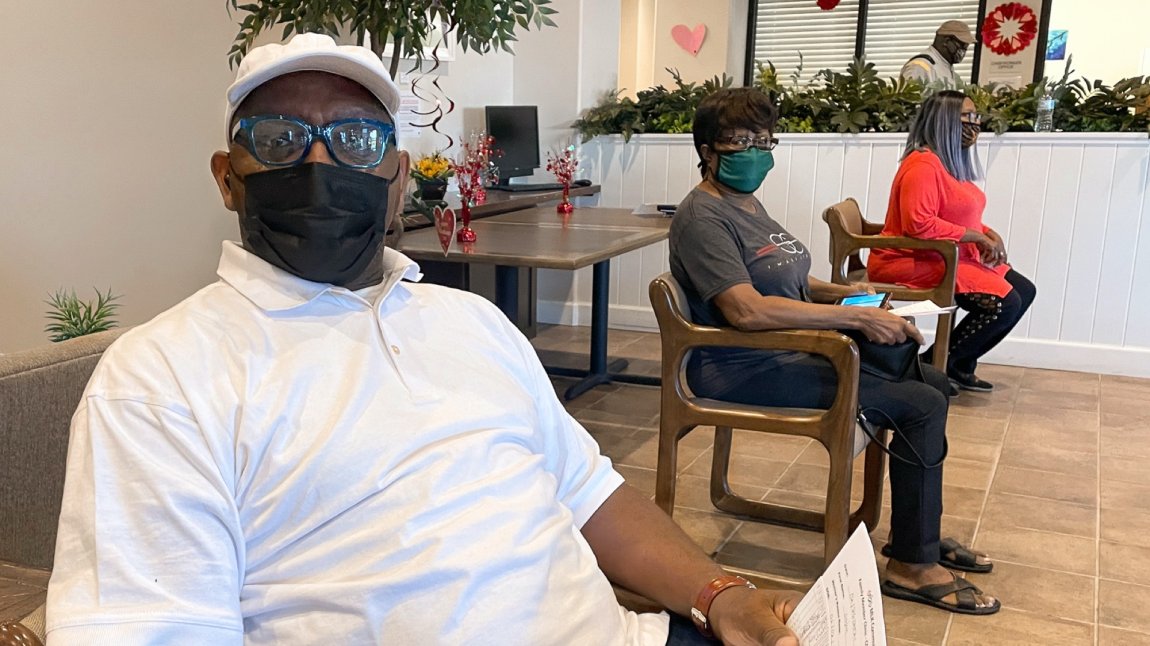Before 9am, Dunnie Davis is already in line for his vaccine against COVID-19. Dunnie is a 72-year-old resident of Gateway at Willowbrook, an independent living home across the street from the Martin Luther King, Jr. Community Hospital. Nurses and staff from the hospital have shown up this morning to vaccinate residents who are 65 years and older—those who have lived with the most risk through this last year of the pandemic.
Staff members pull vials of the Pfizer vaccine from coolers and nurses prepare their stations with alcohol pads and band-aids. Within minutes, residents are queueing up and sitting at stations, rolling up their sleeves. Dunnie, his arms already bared in a black muscle tank, can barely contain his excitement.
Ten years ago, Dunnie suffered a brain aneurysm. Since then, he’s made taking care of his health a top priority. That includes protecting himself against the virus. As the patriarch of the family, he has five daughters, 20 grandkids, and six great-grandkids who form a tight-knit family and who look to him for guidance.
“There’s a stigma going around that older Black people, because of history, really kind of frown on new medicines and vaccines,” he says. “But I’ve got 30 people waiting for me to call and tell them what happened. They’re kind of waiting because they’re scared, but I’m setting the example. I can say to them, ‘Hey I did it, I’m feeling fine!’”


